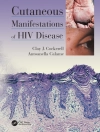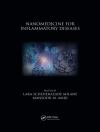In examining the relationship between nutritional exposure and disease aetiology, the importance of a carefully considered experimental design cannot be overstated. A sound experimental design involves the formulation of a clear research hypothesis and the identification of appropriate measures of exposure and outcome. It is essential that these variables can be measured with a minimum of error, whilst taking into account the effects of chance and bias, and being aware of the risk of confounding variables. The first edition of Design Concepts in Nutritional Epidemiology presented a throrough guide to research methods in nutritional epidemiology. Since publication of the 1st edition, we now have a much better understanding of the characteristics of nutritional exposure that need to be measured in order to answer questions about diet-disease relationships. The 2nd edition has been extensively revised to include the most up-to-date methods of researching this relationship. Included are new chapters on qualitative and sociological measures, anthropometric measures, gene-nutrient interactions, and cross-sectional studies. Design Concepts in Nutritional Epidemiology will be an essential text for nutritionists and epidemiologists, helping them in their quest to improve the quality of information upon which important public health decisions are made.
Barrie M. Margetts & Michael Nelson
Design Concepts in Nutritional Epidemiology [PDF ebook]
Design Concepts in Nutritional Epidemiology [PDF ebook]
购买此电子书可免费获赠一本!
语言 英语 ● 格式 PDF ● ISBN 9780191029424 ● 编辑 Barrie M. Margetts & Michael Nelson ● 出版者 OUP Oxford ● 发布时间 1997 ● 下载 6 时 ● 货币 EUR ● ID 2911772 ● 复制保护 Adobe DRM
需要具备DRM功能的电子书阅读器












